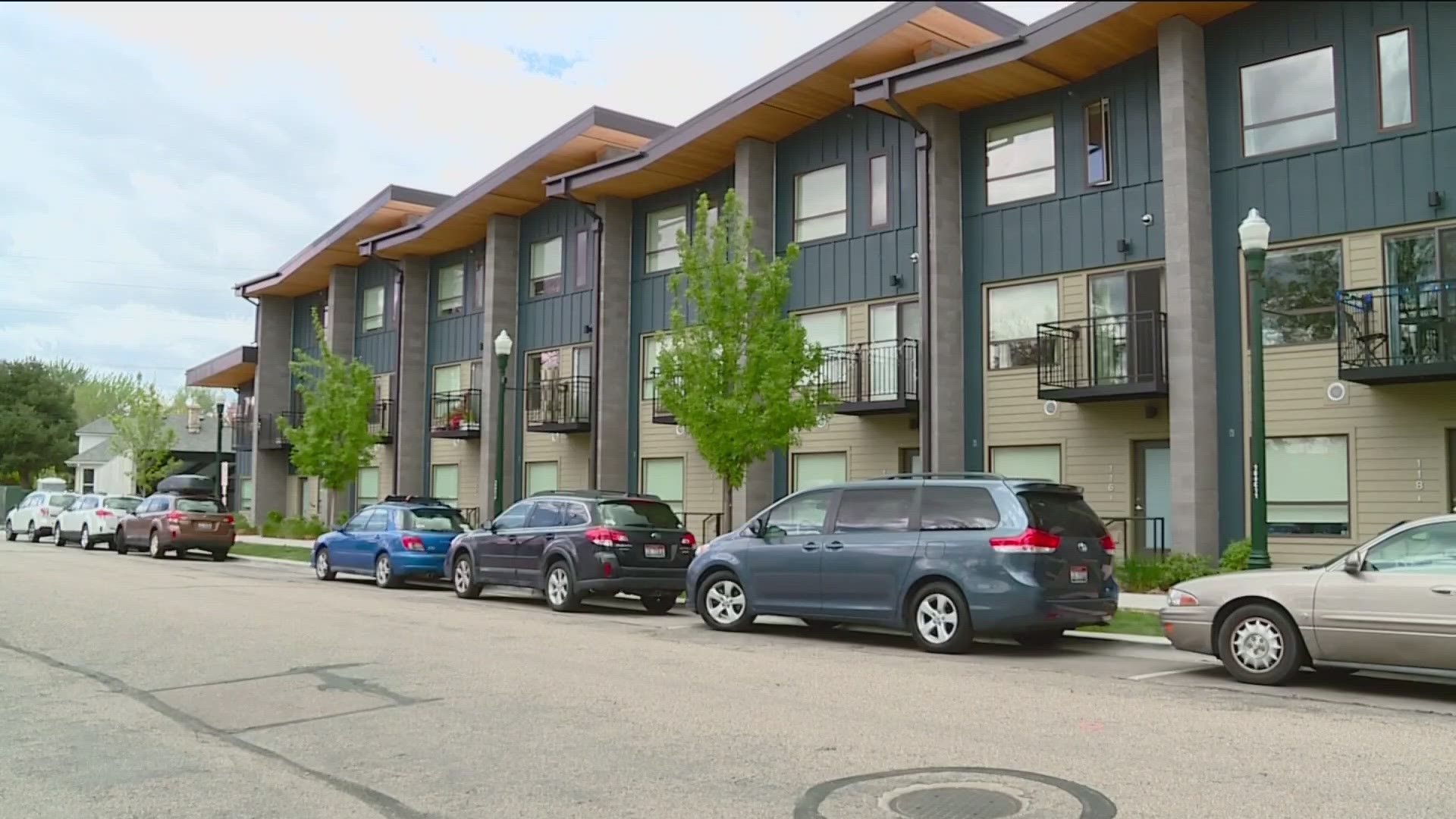BOISE, Idaho — The City of Boise's Zoning Code Rewrite is in its final stages. If you don't know, a zoning code is how new buildings and developments are planned and approved. City leaders say this rewrite will help create a modern city for everyone, but critics say it will only bulldoze old neighborhoods to put up cramped apartments.
Boise is short on housing.
"We did a housing needs assessment a few years ago that said that the city needed to produce about 2,700 houses per year in order to keep up with demand, just to keep prices from going up. Well, we're not even close to that," said Tim Keane, Boise’s Planning and Development Services Director. "We hope that this ordinance will enable the kind of supply that Boise really needs, and a variety of houses."
Keane says the Zoning Code Rewrite, which is in its potentially final draft, maps out the future design and development of the entire city. One of its themes is increasing density. That means more homes with smaller footprints.
"It proposes increases in density that are very appropriate to Boise, this isn't dramatic changes," Keane said.
But some people say these changes aren't just dramatic but harmful. Their complaints are outlined in a flyer circulating online. It claims the code would reduce the amount of affordable housing by pushing for the redevelopment of the neighborhoods where you can find the most affordable homes right now.
"Well, this is the opposite of that," Keane said. "For instance, we have a proposal to allow within our neighborhoods slight density increases that are very appropriate and common in a place like North End. But in order to get the higher densities within that piece, you have to provide affordable units."
Another major criticism is that this new code would shut out existing neighbors from development meetings, so they wouldn't be able to voice their concerns with a project going in next door.
There's a truth to that. Keane said. While the code would add a hearing examiner, if a project aligns with the city's goals, it would not have to go through a public hearing.
"We're saying, 'Hey, if you're doing something low density and surface park, you know, with a big parking lot and everything, then you have to go to the Planning and Zoning Commission. If you're doing what we want, which is something denser and pedestrian-designed along a transit corridor, then you do not have to,'" Keane said. "There's all kinds of public process associated with the new ordinance but to be clear, it is intending to make the things we want easier to do."
There's also a claim that the proposed code rewrite would allow for intrusive developments, like retail in the middle of neighborhoods. That's true, as long as the store is no larger than 2,000 square feet and has hours limited to between 7 a.m. and 8 p.m. The idea is to promote neighborhood markets so people wouldn't have to drive for all their shopping.
The most serious claim is that the Zoning Code Rewrite would drive up property values and rent. As we've noted numerous times on Growing Idaho, property values and rent are already spiking in Boise without this new code.
Keane says the whole idea of this plan to increase density is to build where roads and utilities already exist, so residents don't have to pay to connect more and more subdivisions sprawling farther and farther out.
"It's not inevitable that we become the next sprawling, traffic-congested, unaffordable place. That's not inevitable," Keane said. "We can make different decisions, but we have to do them right now. Because really the future is now in Boise when it comes to this."
If you're wondering where everyone is going to park, you’re not alone. The new code would also require less parking for single family, duplex, triplex, and fourplex units. The parking for multifamily and commercial buildings wouldn't change. The idea is that less parking leaves more space for bike and walking paths, to allow for more options to get around, instead of just driving everywhere.
You can read the whole draft of the Zoning Code Rewrite for yourself right here.
The draft is set to be heard by the Planning and Zoning Commission in public hearings starting April 24.
Watch more 'Growing Idaho':
See the latest growth and development news in our YouTube playlist:

